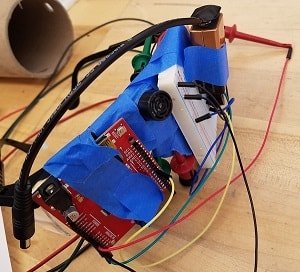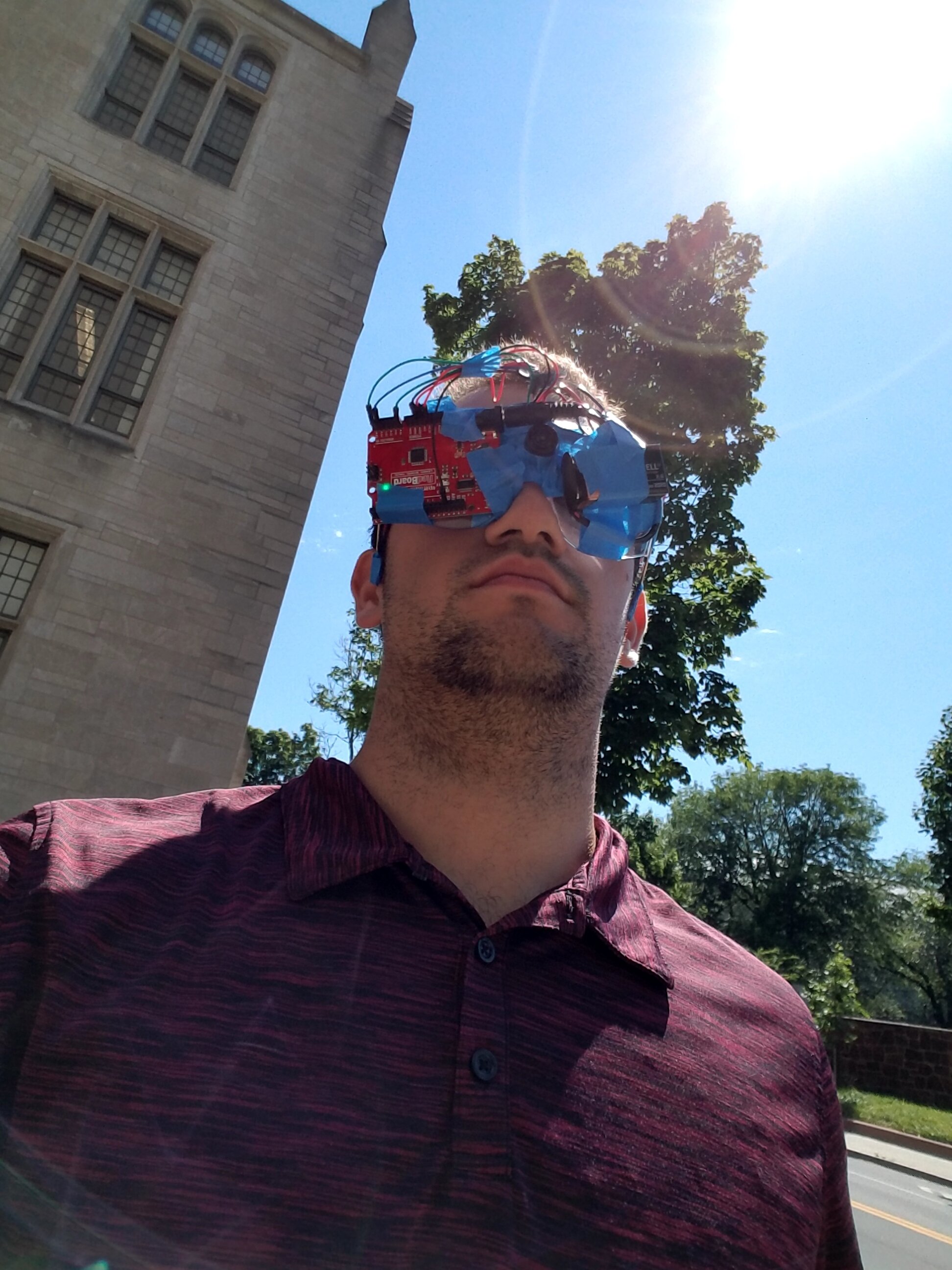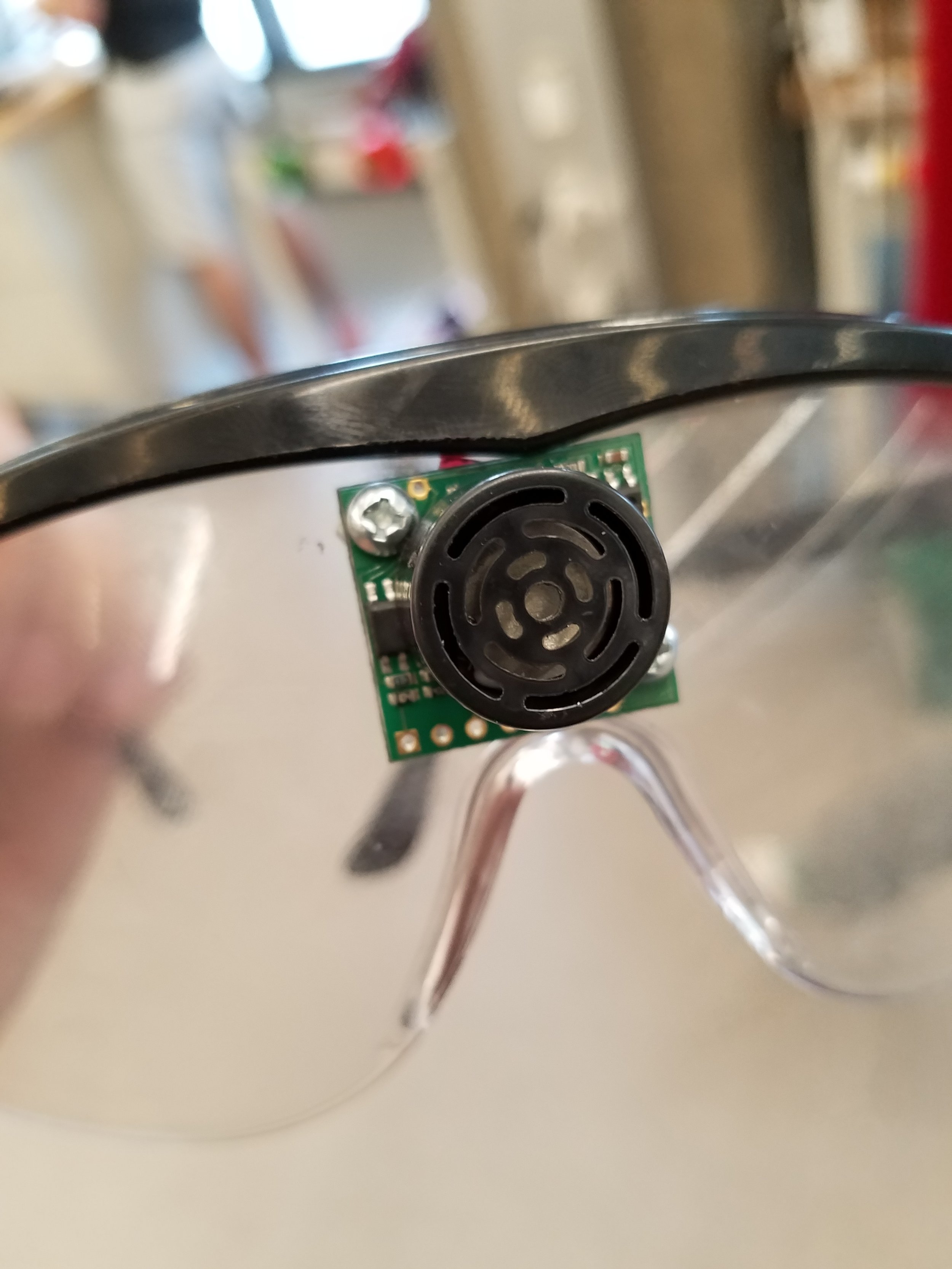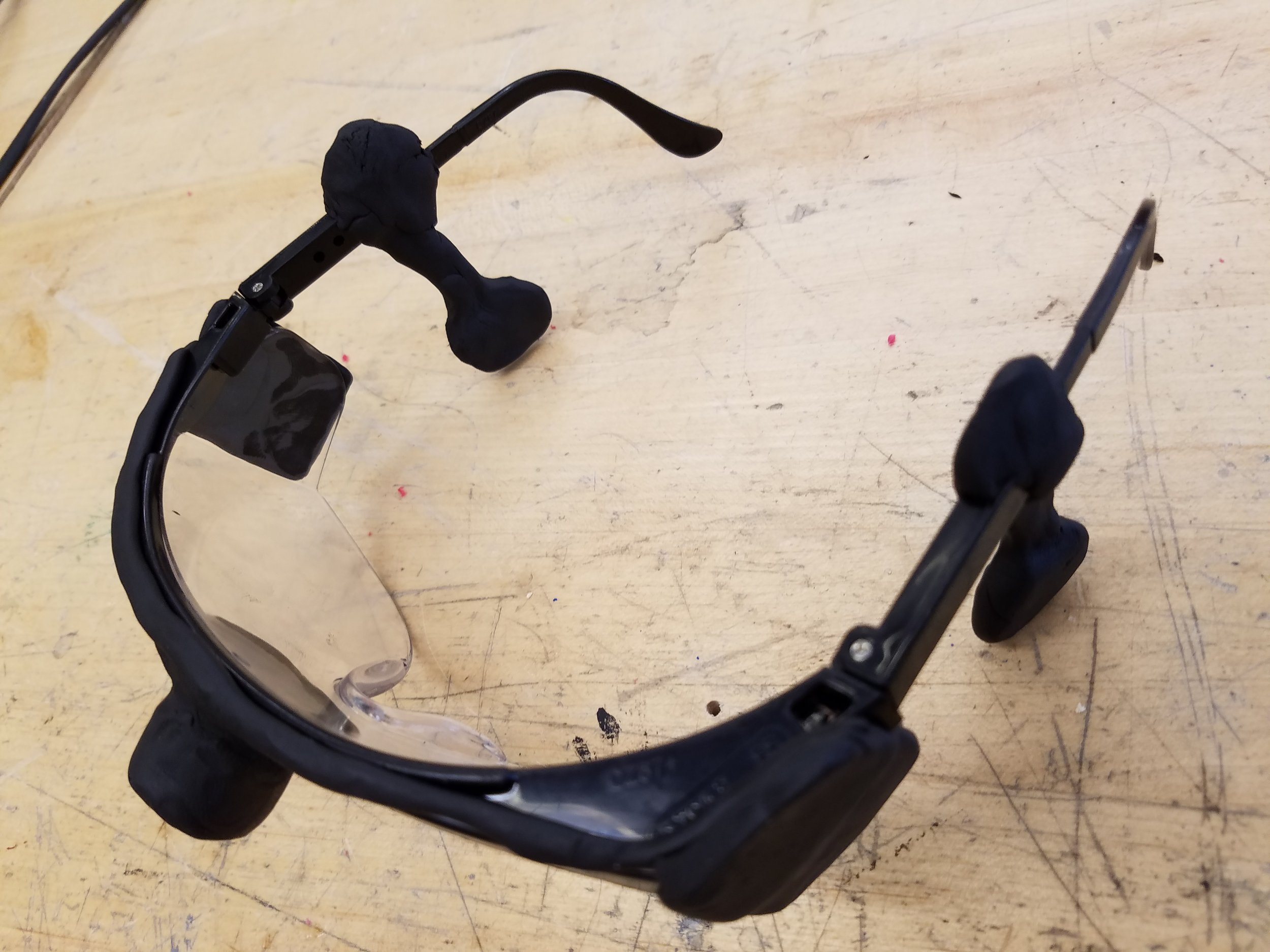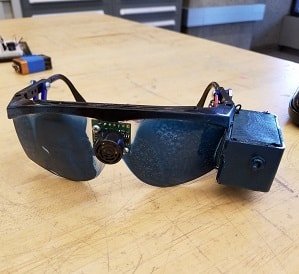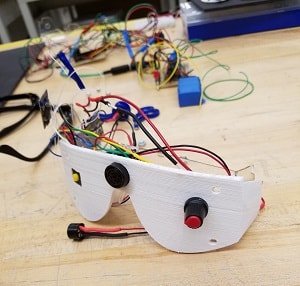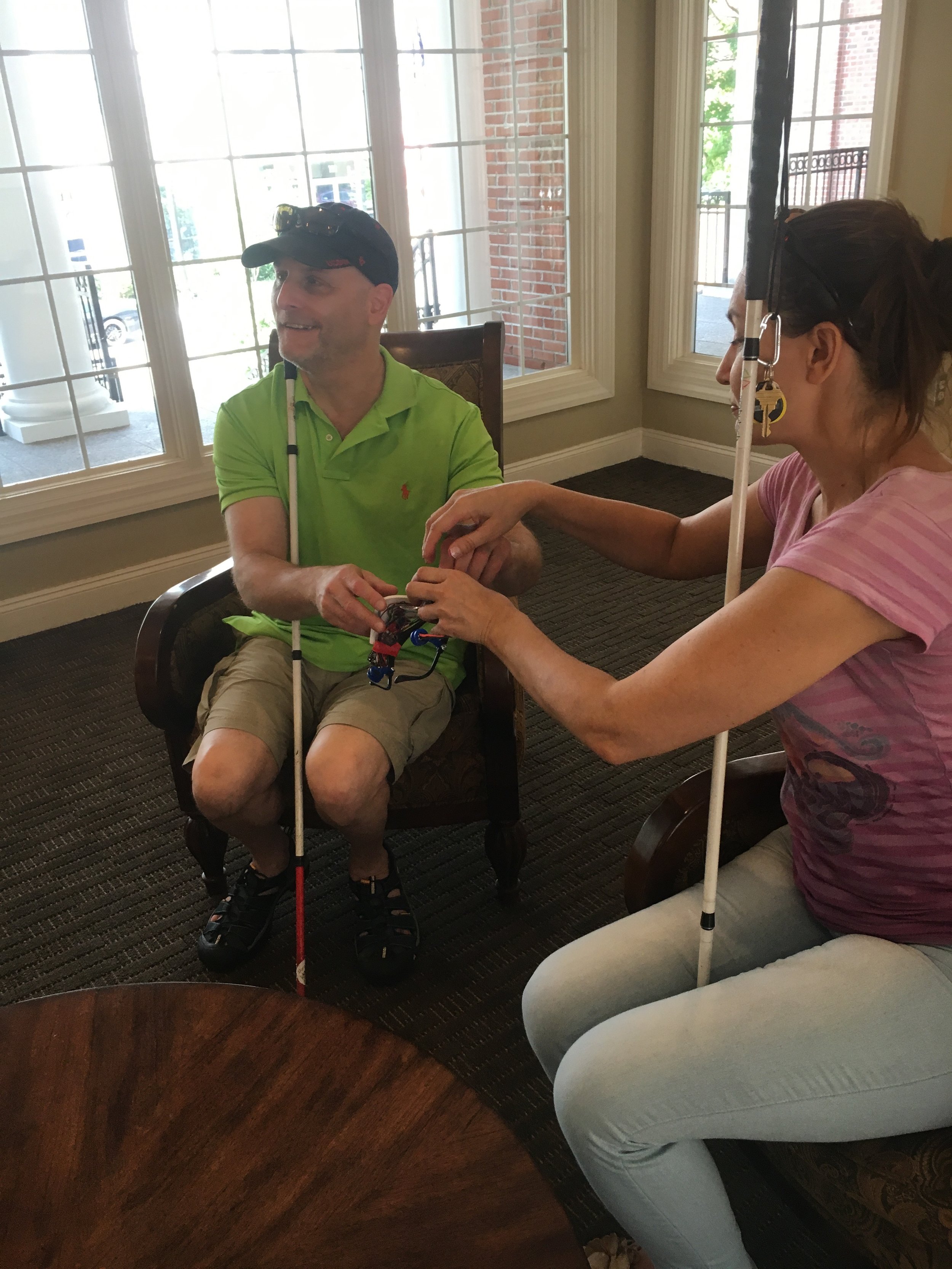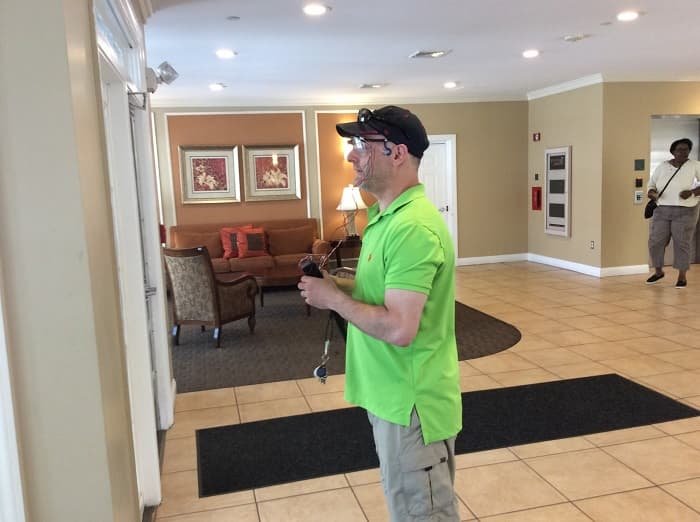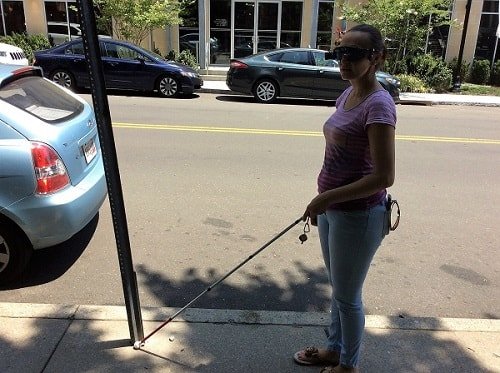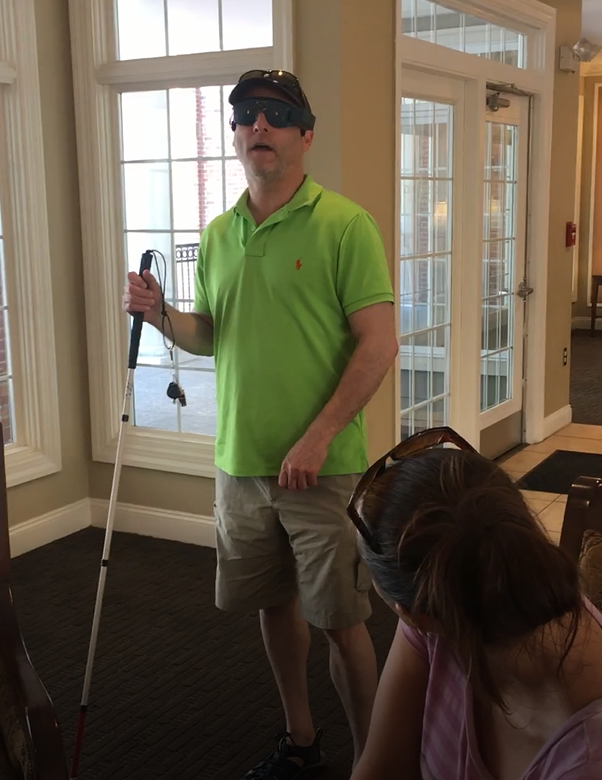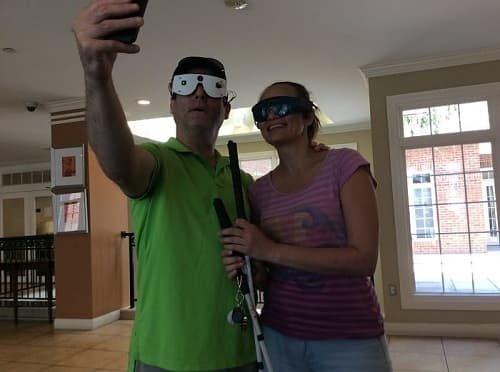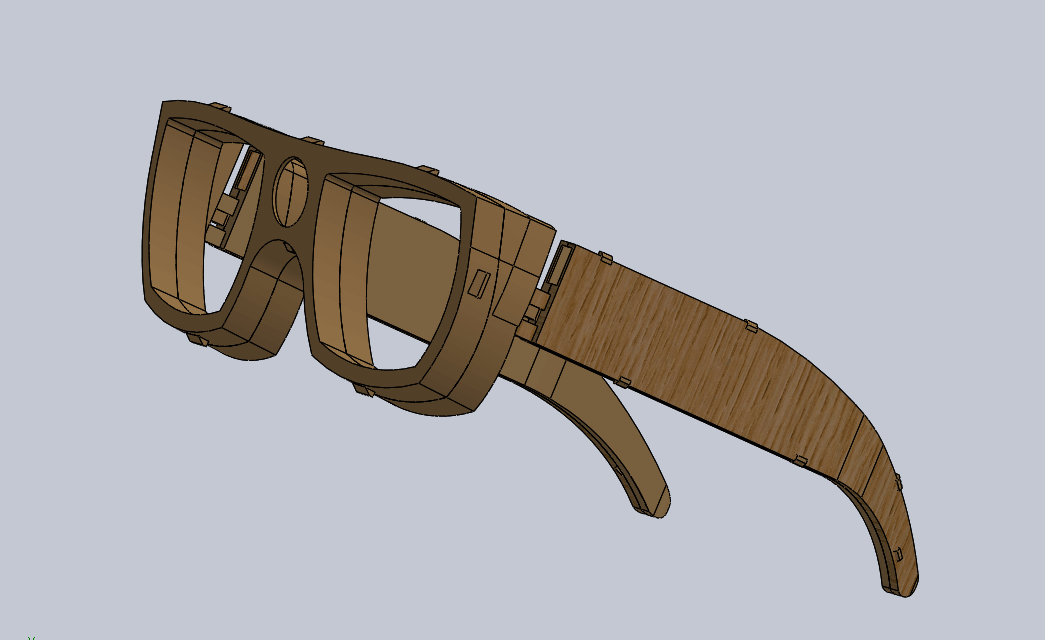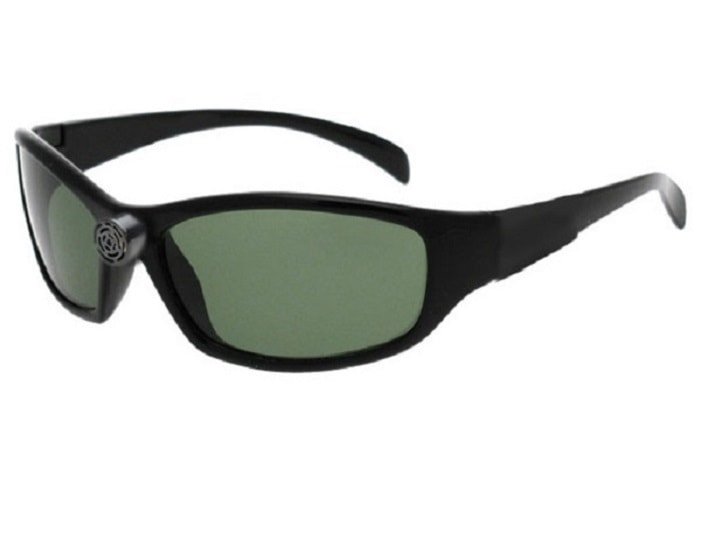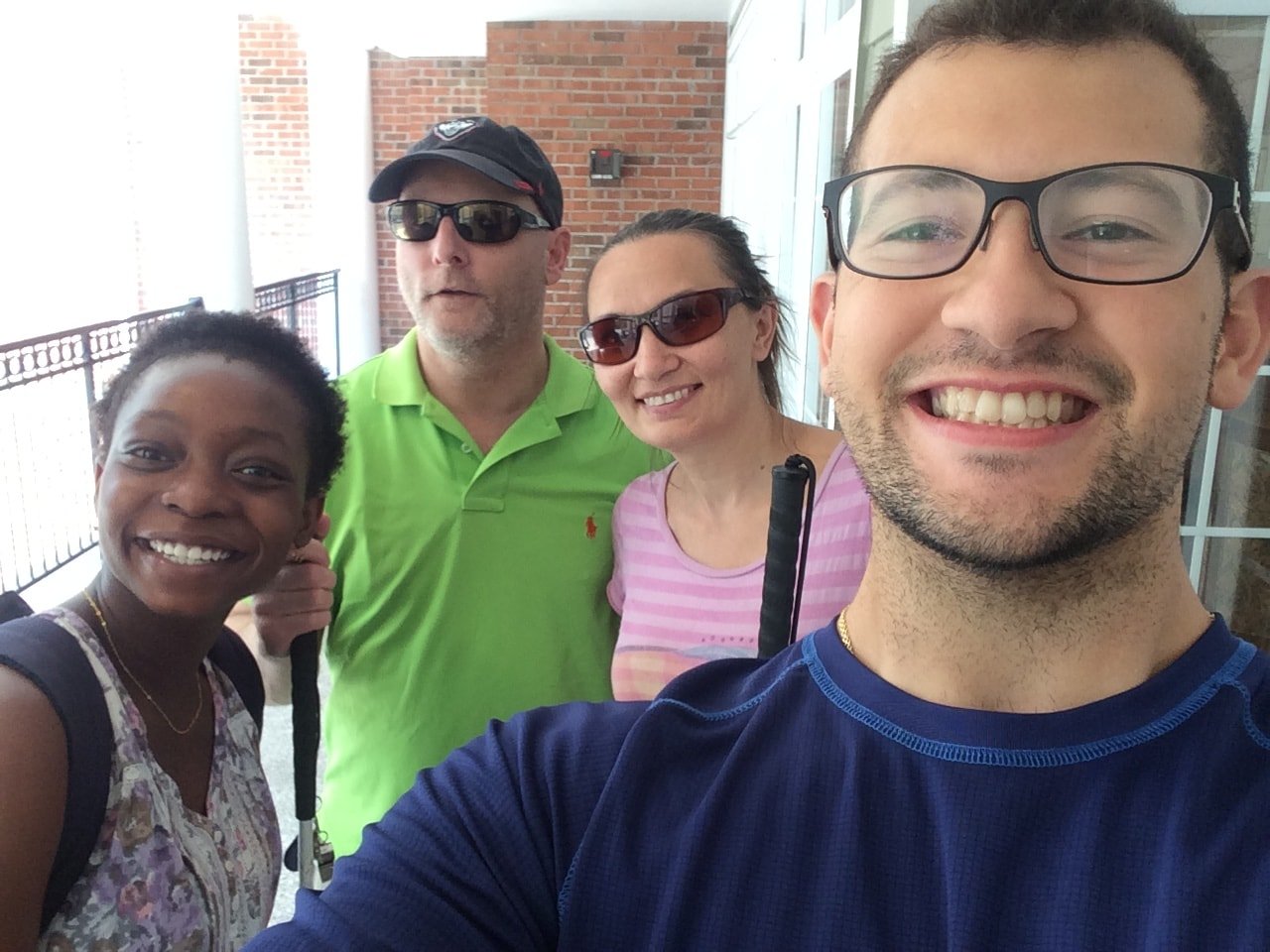Variant Vision
How can we empower independence for the visually impaired through wearable technology?
Variant Vision was a collaborative effort with blind disability activists to develop low-cost, open-source smart glasses for independent navigation. Working closely with Phillip, a former firefighter and blindness advocate, we incorporated his firsthand experiences to inform the iterative development of the Variant Vision Smart Glasses.
Leading the research and prototyping, I explored low-cost object detection electronic hardware, finding ultrasonic rangefinding to be a reliable hazard detection method. User testing, including feedback from Phillip and Honorata, helped refine the design and desirability of features such as volume control and detection sensitivity. Through multiple iterations, we reduced the electronic footprint and encapsulated all components within a 3D-printed glasses frame.
During our user research, we met Phillip, a blind advocate who shared insights into the challenges faced while navigating. His experiences inspired the need for improved detection above waist-level. By integrating audio and haptic feedback into the smart glasses, we addressed these challenges. Phillip evaluated the glasses' capabilities compared to a white cane, emphasizing the importance of UV protection, comfort, and aesthetics for individuals with degenerative eye diseases.
The final presented prototype of the Variant Vision project, designed to mimic conventional glasses frames, showcased the integration of detection sensors into stylish UV-protecting eyewear. Through CAD modeling and digital concept renderings, we explored different form factors and applications for the technology.
Variant Vision represents our commitment as designers and engineers to empowering independence for the visually impaired through innovative, accessible wearable technology.


